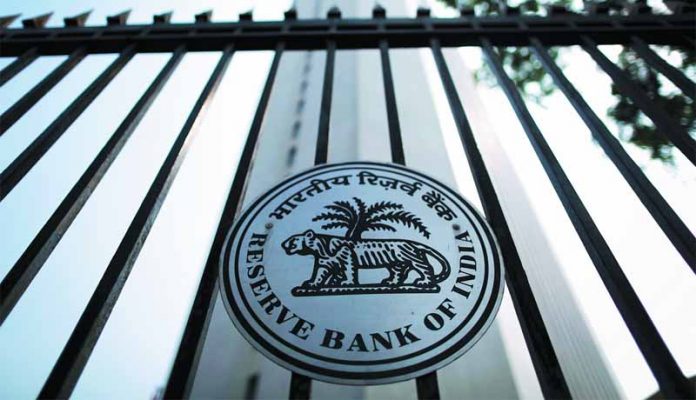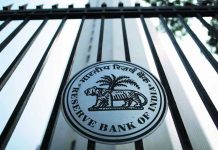This article has been written by Tanya Tekriwal. The article deals with all the necessary details pertaining to Section 147 of the Negotiable Instruments Act, 1881, where it sheds light on allowing parties to compound the offences under the Act, irrespective of all that has been covered under the Bharatiya Nagarik Suraksha Sanhita 2023 (Criminal Procedure, 1973). The article talks about the compounding of offences under the Act. This Section, introduced via the 2002 amendment to the Act has proved instrumental in ensuring the resolution of disputes in connection to dishonoured cheques.
Table of Contents
Introduction
Dishonouring of the cheque is an offence under the Indian regulatory framework. However, it is cognizable only if the payee or the holder files a written complaint within the given time frame. Sections 138 to 147 of the Negotiable Instruments Act, 1881 (hereinafter referred to as the Act) discuss the comprehensive Code for the trial of offences that fall under this Act. These sections were inserted in 2002 when the Act was amended. Hence, if Courts follow the provisions of this Act strictly, more so the ones laid down between Sections 138 to 147, the majority of cases will get resolved within a fair and reasonable time.
In this article, we will discuss Section 147 in detail.
Explanation of Section 147 of Negotiable Instruments Act, 1881
Section 147 of the Act states that offences that are committed under the Act can be compounded. This means that the plaintiff and defendant or the parties to the case have the liberty to settle the matter and proceed with the dropping of the charges despite the Code of Criminal Procedure not allowing this in the general sense.
In the Damodar S. Prabhu vs. Sayed Babalal H. (2010), the Apex Court laid down extensive guidelines regarding the manner in which the compounding of offences was supposed to take place under the Act. The Court shared a formula according to which the cost could be imposed on the parties depending on the stage at which the compounding took place under the Act. If the parties agreed to reach a settlement in the initial stages, the lesser costs would be imposed. If the parties agreed to settle at a later stage, higher costs would be imposed.
In the matter of M/s Meters and Instruments Pvt. Ltd. vs. Kanchan Mehta (2017), the Hon’ble Supreme Court stressed that Courts should motivate parties to proceed with compounding of offences in the incidents of cheque dishonour under the Section 147 so it doesn’t become a litigator’s paradise. Moreover, if it so happened that the party accused for the cheque dishonour compensated the victim on its own accord, the proceedings taking place under Section 138 of the Act could be brought to an end in the beginning only.
What do you mean by compoundable offences
Compoundable offences are those offences for which the law allows the complainant and the accused to come to an agreement between themselves to settle the dispute and drop the charges. Usually, it takes place in exchange for some compensation or agreement. The compounding of the offences can take place either with the leave of the court or without the leave of the court. Once an offence has been compounded between the parties, it is considered that the offence has been resolved. It prevents the parties from taking any further legal action against the person who committed the compoundable offence.
Section 147 of Negotiable Instruments Act, 1881
Section 147 of the Act throws light on the power of compounding of offences under the Act. Majorly these offences relate to instances of cheque dishonour as stated under Section 138 of the Act.
Importance of compounding offences under the Act
Section 147 of the Act provides for compounding of offences. It helps in speedy resolution of disputes by maintaining efficiency in the proceedings and doing away with lengthy court trials. It also aids in the restoration of the relationship between the parties through amicable settlement. Usually, legal proceedings are expensive; hence, compounding can help in the reduction of legal costs. Simultaneously, it reduces the burden upon the judicial system which allows the Courts to decide cases of more complex in nature. It encourages good practices by avoiding legal troubles.

In the case of Vinay Devanna Nayak vs. Ryot Seva Sahakari Bank Ltd. (2007), the Supreme Court observed that Section 138 was inserted in the Act to prevent dishonesty on the part of the drawer of a negotiable instrument while issuing cheques in the absence of sufficient funds or with the intention to induce payee or holder in due course to act upon it. In these matters, the compounding of offences should not be denied. With this intention, the Parliament inserted Section 147 in the Act. Hence, the Supreme Court disposed of the appeal and compounded the matter as per Section 147 of the Act on the basis of the settlement reached between the parties.
The Supreme Court in the case of J.V. Baharuni vs. State of Gujarat (2014), observed that Sections 143 to 147 of the Act were incorporated with an object of early disposal of cases in a simplified procedure. They were inserted to do away with all the processes of a regular criminal trial that causes an inordinate delay in the final disposal of the case. Insertion of these Section will ensure that trials under the Act will be disposed of as expeditiously as possible without compromising with the right of an accused for a fair trial.
Code of trial for Section 147 of Negotiable Instruments Act, 1881
While the trial is in the process, the parties may agree to compound the offence so that the matter gets resolved without any issue. This is how the process works:
- Both the parties agree to file a joint petition in presence of a judge or a magistrate. The parties will declare that they have resolved the matter and are willing to compound the offence.
- Upon getting the joint petition submitted by both parties, the magistrate may give his permission for compounding of the offence.
- After the compounding of the offence, the trial will meet its end stage. The accused in the matter is acquitted and the dispute is considered to be resolved.
However, it must be noted that, under the Section 147, the offence can be compounded at the appellate stage as well. The parties have the flexibility to choose to settle the matter even after the conviction of the accused. However, at this stage, the parties have to do it before the appellate court and the appellate court has the power to decide whether it will accept the compounding or not. Moreover, upon moving ahead with the compounding of offences at this stage, the court has the power to quash the conviction of the accused.
Compounding offences under BNSS and Section 147 of the Act
Section 359 of the Bharatiya Nagarik Suraksha Nyaya Sanhita 2023 (Section 320, Code of Criminal Procedure, 1973) (hereinafter referred to as “the BNSS”) provides for the compounding of offences. It provides for offences which can be compounded, either by the parties without the leave of the court or by the parties but only after obtaining the leave of the court. Sub-section (1) of Section 359 provides for offences that are compoundable by the parties without the leave of the Court. For example, cheating by impersonation, fraudulent removal or concealment of property, house-trespass, printing or engraving matter, knowing it to be defamatory, etc. Sub-section (2) of Section 359 provides for offences that are compoundable by the parties only with the leave of the Court. For example, criminal breach of trust by a clerk or servant, causing hurt by doing an act so rashly and negligently as to endanger human life or the personal safety of others, causing miscarriage, marrying again during the lifetime of a husband or wife, etc.
It must be noted that while Section 359 of the BNSS states that the offences may be compounded, Section 147 of the Act states that the offences shall be compounded. While the Section 359 of the BNSS makes it discretionary, Section 147 of the Act declares it mandatory.
Furthermore, Section 147 of the Act begins with a non-obstante clause. Non-obstante clause means a statutory provision that will prevail over other provisions or enactments. It provides that the compounding of an offence under the Act is to be controlled by Section 147 of the Act. Section 359 of the BNSS will not be applicable for compounding of an offence under the Negotiable Instrument Act, as Section 147 is a special provision which deals with offences only under the Act.

In the case of Damodar S. Prabhu vs. Sayed Babalal H. (2010), the Supreme Court observed that Section 147 of the Act is an enabling provision providing for the compounding of offences prescribed under the same Act. Therefore, it is an exception to the general rule provided under sub-section (9) of Section 320 of the Code which states that “no offence shall be compounded except as provided by this section.”
The court accepts that when it endorses guidelines in relation to the compounding of offences mentioned under Section 138 of the Act, it may come across as judicial law making since no legislative guidance has been provided in the Section 147 of the Act. Owing to such a legislative vacuum, the court rationalises its actions to avoid the delay in the litigation process, more so since the scheme given under Section 320 of the CrPC is not completely applicable in such scenarios.
With a view to promoting the speedy disposal of cases and lowering the burden on the judiciary, the court proposed the system of cost imposition which would depend from case-to-case. Moreover, the court used the powers given to it under Article 142 of the Constitution to ensure that complete justice prevails in matters where no explicit legislative direction has been provided.

The Supreme Court in the case of JIK Industries Ltd. vs. Amarlal V. Jumani (2012), while discussing the impact of non obstante clauses observed that in olden times it had the impact of non obstante aliquo statuto in contrarium (notwithstanding any statute to the contract). The non obstante clause mentioned in Section 147 does not refer to any Section of the Code but rather refers to the entire Code itself. The impact of such a non obstante clause has to be found out on the basis of consideration of the object of insertion of such clause. The Court has to determine the scope of such a blanket non obstante clause in a very strict manner. Notably, the compounding has been allowed in certain instances where the rights of the public at large are not impinged upon. However, the compounding of this nature is possible in all cases with the permission of the party who’s been injured by the actions of the defaulting party.
Section 147 of Negotiable Instruments Act and dishonour of cheque
Penalties in cases of dishonour of cheque
Chapter XVII of the Act provides for penalties in cases of dishonour of cheque for insufficiency of funds in the accounts of the maker of the cheque. Section 138 of the Act provides that in cases of dishonour of cheque for insufficiency of funds, the maker of the cheque shall be liable to be punished with imprisonment for a term which may extend to 2 years or with a fine which may extend to twice the amount of the dishonoured cheque, or with both.
Section 141 further provides for the offences committed under Section 138 by a company. It provides that every person, who at the time of the commission of the offence, was in charge of the conduct of the business of the company, shall be deemed to be liable for the offence. The proviso provides for an exception. It excludes any person from the punishment if the offence was committed without his knowledge, or he has exercised all due diligence to prevent the commission of the offence.

Can an offence be compounded post-conviction for cheque dishonour
It must be noted that even when the accused has been convicted for his wrongdoing, the Court has the power to compound the offence of cheque dishonour under the Act.
In Naresh Kumar vs. Trilok Chand (2023), the Hon’ble High Court of Himachal Pradesh stated that Courts are empowered under Section 147 of the Act to compound the offence of cheque dishonour even when the accused has been already convicted.
Case laws on Section 147 of Negotiable Instrument Act, 1881
The division bench of the Supreme Court in the case of Anil Kumar Haritwal & Anr. vs. Alka Gupta & Anr. (2004) set aside the conviction of the appellants in the interest of justice as the dispute between the parties was settled and also Section 147 of the Act allows compounding of offence. The appellants were convicted under Section 138 of the Act. The parties filed a compromise petition before the Supreme Court that the dispute between the parties have been settled and the due amount has been paid to the respondent by the complainant.
In the case of B.C. Seshadri vs. B.N. Suryanarayana Rao (2004), the appellant was convicted by the Court for an offence under Section 138 of the Act. The appellant filed an appeal before the Supreme Court. During the pendency of the appeal before the Supreme Court, the parties settled their dispute. Subsequently, the appellant sought for compounding of the said offence where the respondent too was ready for the same. Hence, the Supreme Court allowed the compounding of the offence. And set aside the sentence imposed on the appellant.
Similarly, in the case of G. Sivarajan vs. Little Flower Kuries Enterprises Ltd. & Anr. (2004), the division bench of the Supreme Court allowed the compounding of the offence as per Section 147 of the Act as the claim was settled between the parties and the respondents had no objection if the matter was compounded.
In the case of K. Gyansagar vs. Ganesh Gupta & Anr. (2005), the appellant paid the due amount to the respondent. Both parties filed a joint application for compounding of the offence. Hence the Supreme Court allowed the compounding of the offence and set aside the conviction and sentence of the appellant. Similarly, in the case of R. Rajeshwari vs. H.S. Jagdish (2008), the Supreme Court held that Section 147 of the Act does not bar compounding of an offence under Section 138 of the Act even at the appellate stage of the proceedings.
Conclusion

Section 147 of this Act is a laudable initiative on the part of legislators to make the process of resolving cheque honour disputes much faster and more efficient than ever before. Now that the offences under this Act can be compounded irrespective of what has been laid down in Code of Criminal Procedure, 1973, this approach benefits both parties and allows the judiciary to settle cases in a time-bound manner. However, it is critical to note that the compounding process does not happen with the intent of malice or dishonesty as it is likely to be misused. If this happens, the provision will fail to meet the purpose for which it was drafted and fail significantly to safeguard interest of the involved parties.
Frequently Asked Questions (FAQs)
What does Section 147 of the Negotiable Instrument Act, 1881 provide for compounding of offences?
Section 147 provides for an overriding clause which states that every offence punishable under the Act is compoundable, notwithstanding the provisions of the Code of Criminal Procedure, 1973.
Why does the Negotiable Instruments Act, 1881 provide for compounding of offences?
Compounding of offences reduces the burden on the judicial system while provisioning for quick resolution of disputes outside the court.
Upon whom the authority to compound an offence has been bestowed under the Negotiable Instrument Act, 1881?
Offences under the Act are compoundable between the parties (complainant and accused) with the permission of the court.
What is the process to be followed for compounding of offence under the Negotiable Instruments Act, 1881?
For compounding of an offence under the Act, both the parties file a joint application before the Court requesting its permission to compound the offence. After the satisfaction of the Court, the Court allows compounding of the offence as per the mutually agreed terms between the parties.
Is it necessary to have legal representation for compounding of an offence under the Negotiable Instruments Act, 1881?
Generally, it is not essential to have legal representation for compounding of an offence under the Act, however, it is advisable for both the parties to seek legal representation. It aids in protecting the rights and liabilities of the parties. It also ensures that the terms and conditions of the settlement are fair and legally enforceable.
References
- https://pure.jgu.edu.in/id/eprint/4996/1/Compounding%20of%20Offence.pdf
- https://districts.ecourts.gov.in/sites/default/files/study%20circles.pdf
- https://induslaw.com/app/webroot/publications/pdf/alerts-2020/the-controversy-gets-murkier-can-the-accused-seek-compounding-of-an-offence-for-cheque-dishonour-without-the-consent-of-the-complainant.pdf
- https://www.scconline.com/blog/post/2018/03/31/s-147-of-ni-act-gives-power-to-the-court-to-accept-settlement-and-quash-the-conviction/
Students of Lawsikho courses regularly produce writing assignments and work on practical exercises as a part of their coursework and develop themselves in real-life practical skills.
LawSikho has created a telegram group for exchanging legal knowledge, referrals, and various opportunities. You can click on this link and join:
Follow us on Instagram and subscribe to our YouTube channel for more amazing legal content.
 Serato DJ Crack 2025Serato DJ PRO Crack
Serato DJ Crack 2025Serato DJ PRO Crack









 Allow notifications
Allow notifications


